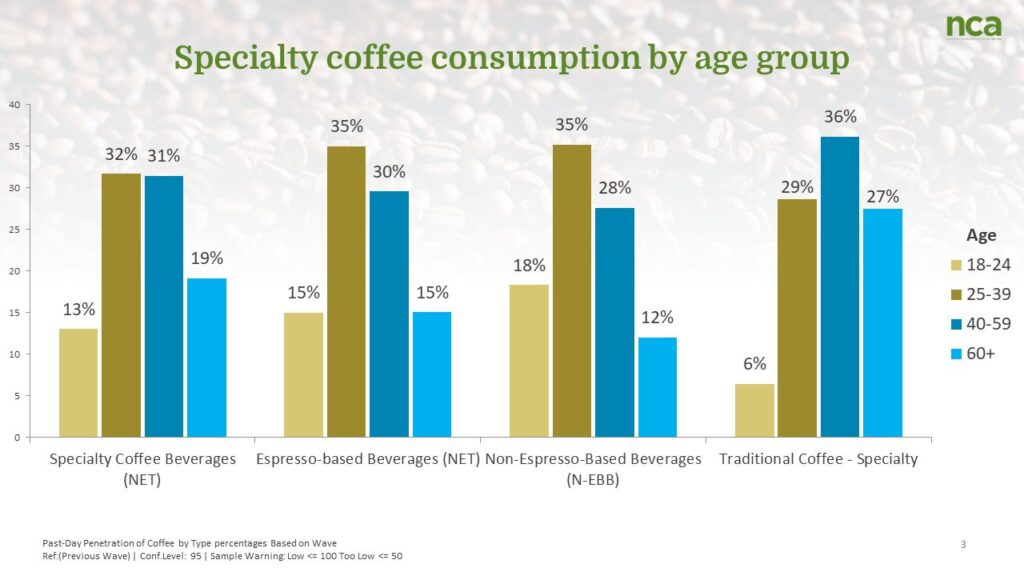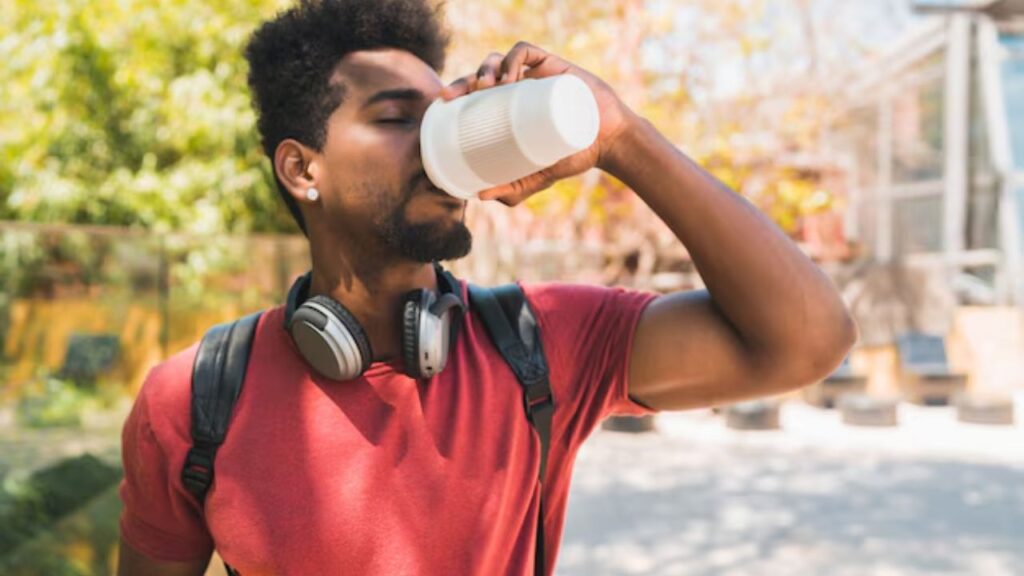13 College Students And Coffee Statistics To Know In 2025
In 2025, the coffee culture among college students has reached unprecedented heights, with nearly 70% relying on their daily brew to fuel late-night study sessions and early morning classes.
Here you will go through the fascinating world of College Students and Coffee Statistics, revealing key insights that highlight changing consumption trends and underscore the role caffeine plays in academic life.
By exploring 13 crucial statistics, you will understand of how coffee shapes the college experience and influences student productivity.
The 13 College Students And Coffee Statistics
Here are the statistics on the caffeine consumption trends among students based on our research.

- High Caffeine Consumption, 92% of students consume caffeine, making it a common part of their daily routine.
- Morning Coffee Habit, 74% of students enjoy coffee in the morning to kickstart their day.
- Youth Coffee Intake Surge, In 2017, coffee consumption increased most among the 13–18 age group.
- Gender Preferences, Coffee is the preferred caffeinated drink for both male and female students.
- Coffee Shops as Study Spots, 26% of students study in coffee shops at least once a week, finding it a productive environment.
- Home Brewing, 30% of students make coffee instead of buying it from cafes.
- Main Reason for Caffeine, The primary reason for consuming caffeine is to feel awake and alert.
- Additional Motivations, Other reasons include enjoying the taste, socializing, and improving concentration.
- Mixed Views on Coffee, Only 27% of students see coffee as a positive substance, reflecting some skepticism.
- Daily Coffee Drinkers, 24% of students drink a cup of coffee every day, indicating a steady habit.
- Energy Drinks Consumption, About one-third of students have consumed energy drinks within the last month.
- Average Coffee Intake, On average, students drink just over two cups of coffee daily, showing a strong reliance on caffeine.
- Daily Coffee Among Teens, Notably, 37% of 13–18-year-olds drink coffee daily, highlighting its popularity among younger students.
Coffee Consumption In Students
Many students turn to coffee as a quick pick-me-up to help them stay awake during late-night study sessions or early morning classes.
92% of students consume caffeine
Studies show that it can help boost alertness and reduce feelings of fatigue, making it easier to focus on studying and retaining information. This is especially helpful during exams or when tackling large amounts of material in a short time.
With so much pressure on students to perform well, a little caffeine can seem like a quick fix to enhance their study sessions.
74% of students drink coffee in the morning
Coffee have significant effect on our bodies, particularly for students who often rely on it to boost their energy and focus. The caffeine in coffee is a stimulant, which means it can temporarily raise your heart rate and blood pressure, making you feel more alert and awake.

This is why many people feel they can’t start their day or tackle a busy schedule without that first cup. For students facing late nights and early mornings, coffee can seem like a lifeline.
It’s important to be mindful of how much coffee you consume. It can help with concentration and productivity, relying too heavily on caffeine can lead to dependence. This might result in withdrawal symptoms, like headaches or fatigue, if you skip your usual cup.
13–18-year-olds saw the greatest increase in coffee intake in 2017, of any age group
Coffee is now a big part of global culture, especially in the United States. Tea and alcohol have been enjoyed for thousands of years, coffee has a shorter but important history. It started to become popular around the 15th century, and recently, more people are drinking it. In 2017, 62% of Americans drank coffee, up from 57% the year before.
A question arise Is coffee becoming more popular than tea among people.
More young people, especially those aged 13 to 18, are drinking coffee. In just three years, the number of coffee drinkers in this age group increased from 23% to 37%. This trend shows that coffee culture is changing, likely due to social media, café culture, and more coffee options. Coffee is a popular choice for energy and social events, becoming a regular part of many people’s lives.
Caffeine Delivery Statistics
Coffee is the preferred caffeine drink in male and female students following is its delivery statistics.
Coffee is the preferred caffeine drink in male and female students
Energy drinks are trendy but coffee remains the favorite choice due to its rich history and social aspects. It provides caffeine and offers antioxidants and enhances social experiences. Students should be careful with their caffeine intake to avoid jitters and anxiety. Balancing coffee with healthy habits can help them enjoy its benefits without negative effects.
26% of students study in coffee shops at least once a week
More students are drinking coffee because coffee shops are easy to find on and near campuses. Big chains like Starbucks and local shops are everywhere, giving students quick access to their favorite drinks. These places aren’t just for coffee; they also serve as social spots where students meet to study or hang out.
Many campuses have coffee shops that offer a comfy place to work, with free Wi-Fi and cozy seating. This makes them popular for students who want to study while being around others. Studying in coffee shops shows that students prefer lively environments that boost creativity and focus.
30% of students make their own coffee rather than buy from coffee shops
Many students prefer making coffee at home instead of going to coffee shops because it’s cheaper.

Brewing instant or filter coffee saves money, which is important for students on a budget. Making coffee at home is also convenient; they can enjoy their drinks anytime without waiting in line.
The Effects
There are following effects of caffeine consumption on students.
The most commonly cited reason for caffeine consumption is to feel awake
The National Library of Medicine highlights an interesting trend among students when it comes to caffeine consumption. 28% have mixed energy drinks with alcohol, the main reason many turn to coffee is simply to stay awake and alert. This suggests that students often rely on caffeine to combat fatigue, especially during busy study sessions or late-night outings.
Other common reasons include enjoying the taste, the social aspects, and improving concentration
Many students enjoy coffee for its caffeine boost and for its rich flavor and the social experience it offers. Sipping coffee can be a great way to catch up with friends or study together in a cozy café.

Many find that coffee helps them focus better, improves their mood, and gives them the energy needed to tackle their busy schedules. Most of the students drink Powerade, But some mistakenly believe that Powerade have caffeine, but it does not.
Only 27% of students said they believed coffee to be a positive substance
Mixed opinions are present about coffee among students. Many recognize its benefits, like boosting energy and focus, a significant number feel indifferent, viewing it as neutral. This could be due to personal experiences or simply a lack of strong feelings either way.
Frequency
Here we have discussed the frequency of coffee consumption in students.
24% of students drink a cup of coffee every day
Drinking up to three cups of coffee a day can actually offer some health benefits, like lowering the risk of heart attacks and Parkinson’s disease. Remember that not everyone should consume caffeine. Pregnant women, people with certain heart conditions, or those who are sensitive to caffeine may need to limit their intake or avoid it altogether.
Monster Energy drink is also become popular in some students. Monster prominently displays an 18+ label so students below should avoid it.
Approximately one-third of students said that they had consumed energy drinks within a 30-day period
Many students rely on coffee for their daily boost, fewer opt for energy drinks, perhaps due to concerns about their high caffeine content and other additives like taurine. These ingredients can lead to increased heart rates, which might be a worry for some.
The Average student drinks just over two cups of coffee per day
Many students find that enjoying a cup before class or during study sessions helps them stay alert and focused. It’s not just about the caffeine boost; the ritual of brewing and sipping coffee can also provide a comforting break in a busy day.
As exams approach, it’s common for coffee consumption to increase, as it helps many students power through late-night study sessions.
37% Of 13–18-Year-Olds Drink Coffee Every Day
It’s true that coffee consumption isn’t limited to just college students; teenagers are also getting in on the action. Recent surveys indicate that about 37% of teens aged 13 to 18 drink at least one cup of coffee daily.
This trend could be attributed to various factors, including the influence of social media, where coffee culture is often glamorized, and the rise of trendy coffee shops that appeal to younger crowds.
Conclusion
The relationship between college students and coffee continues to evolve as we approach 2025. The College Students and Coffee Statistics we’ve explored highlight not only the growing popularity of coffee among students but also its impact on their academic performance and social life.
With an increasing number of students relying on caffeine to fuel their studies, it’s clear that coffee has become a staple in college culture. It’s essential to balance caffeine consumption with healthy habits to ensure overall well-being. So, whether you’re a casual drinker or a coffee aficionado, be mindful of your choices and enjoy your next cup responsibly.
FAQ’s
How Much Caffeine Do College Students Eat A Day?
On average, college students consume about 159 mg of caffeine each day. This typically comes from sources like coffee, energy drinks, and sodas, with a large percentage of students relying on caffeine to help them stay awake and focused during late-night study sessions. Around 92% of college students have consumed caffeine in the past year, highlighting just how common it is among young adults.
How Much Does Coffee Contribute To The US Economy In 2022?
In 2022, coffee had a significant impact on the U.S. economy, contributing around $288 billion to the GDP. This vibrant industry also supports approximately 1.7 million jobs nationwide, highlighting its importance not just as a beloved beverage but also as a major economic driver.
What Are The Odds Of A Successful Independent Coffee Shop?
The odds of a successful independent coffee shop can be quite challenging, with surveys indicating that 50% to 74% may not make it past their first five years. Factors such as location, competition, and effective management play crucial roles in determining whether a coffee shop thrives or struggles.







